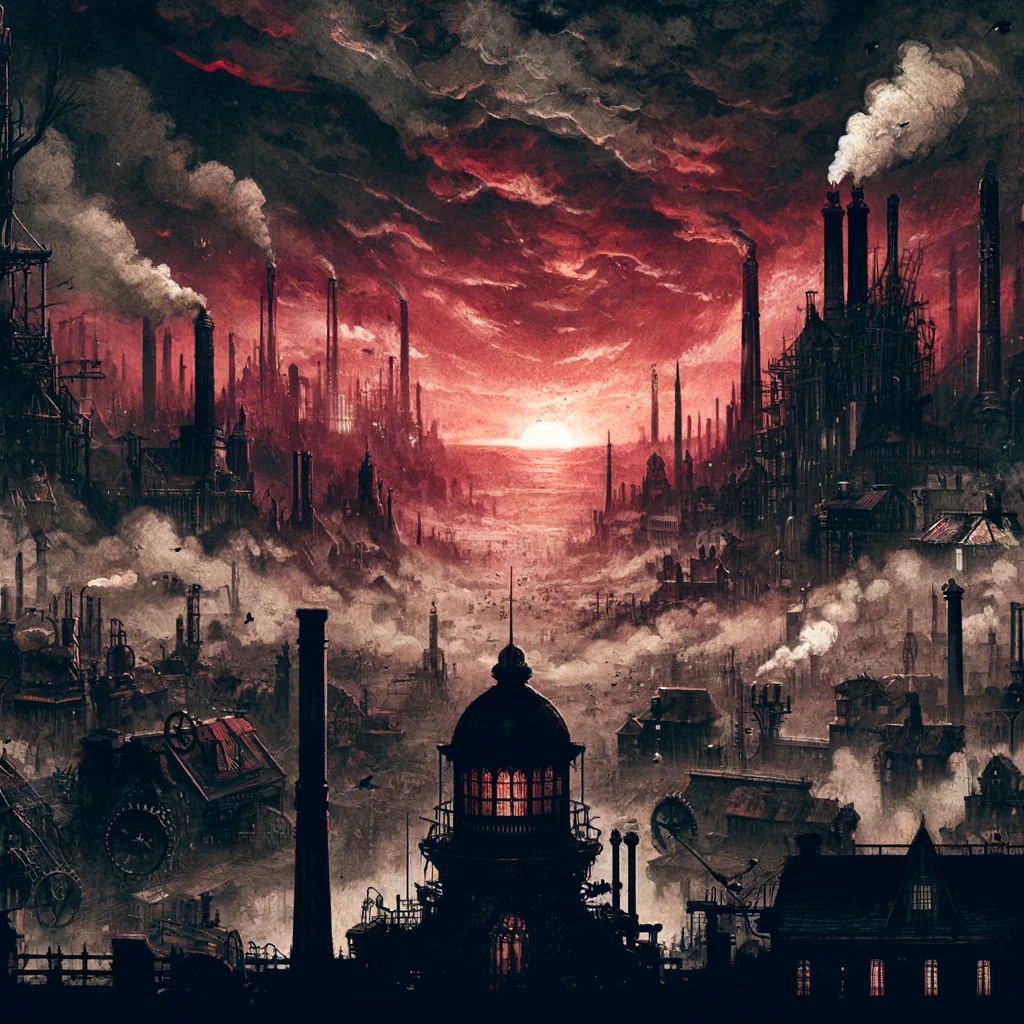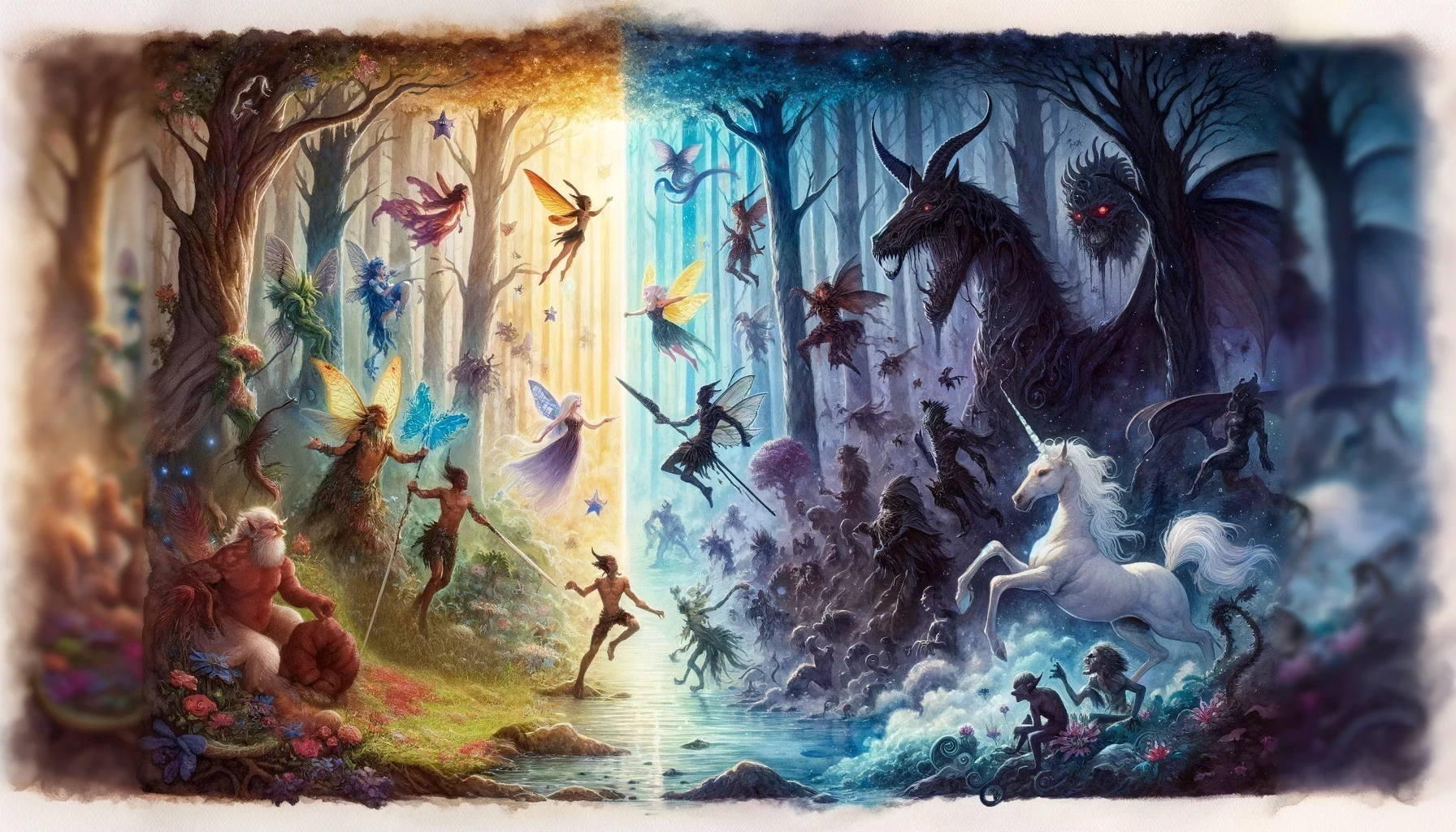top of page

The Clockwork Conspiracy
A busy steampunk cityscape scene



The Clockwork Conspiracy
A busy steampunk cityscape scene
1/4
D&D Dungeon Master - DM
Dungeon Master (DM)
The Dungeon Master, commonly referred to as DM, is a pivotal role in tabletop role-playing games like Dungeons & Dragons (D&D). As the DM, you are the storyteller, game referee, and guide who oversees the game's progression and creates an immersive experience for the players.
At its core, the Dungeon Master assumes the responsibility of narrating the game world and describing its inhabitants, landscapes, and events. You set the stage for adventure, crafting captivating stories and challenges that engage the players' imagination and creativity.
One of the primary functions of the Dungeon Master is to facilitate gameplay by interpreting and applying the game rules. You ensure fair play, adjudicate conflicts, and determine the outcomes of players' actions through dice rolls and checks. The DM establishes the Difficulty Class (DC) for various tasks and skill checks, representing the level of challenge or success required.
As the master of the game world, the DM controls non-player characters (NPCs) that the players interact with throughout their journey. NPCs can be friendly allies, mysterious quest-givers, or cunning adversaries, adding depth and complexity to the narrative. It is the DM's role to bring these characters to life, providing unique personalities, motives, and dialogue.
Additionally, the Dungeon Master designs and manages encounters with monsters and creatures. From mighty dragons to cunning goblins, the DM creates thrilling battles and dynamic encounters, ensuring a balance of difficulty and excitement. You strategize and control these adversaries, challenging the players and fostering a sense of accomplishment when they emerge victorious.
Beyond storytelling and gameplay management, the Dungeon Master cultivates a collaborative and enjoyable atmosphere at the gaming table. You encourage role-playing, facilitate communication among players, and foster a sense of camaraderie.
Through improvisation, quick thinking, and adaptability, the DM reacts to players' choices and guides them through a shared adventure.
In summary, the Dungeon Master is the orchestrator of the tabletop role-playing game experience. With storytelling prowess, game mastery, and a passion for creating memorable adventures, the DM crafts a world where players' imaginations can flourish, fostering countless hours of thrilling and immersive gameplay.
Dungeon Master (DM): The Dungeon Master, often abbreviated as DM, is a key role in tabletop role-playing games like Dungeons & Dragons (D&D). The DM serves as the game's storyteller, referee, and guide, responsible for creating and overseeing the game world, controlling non-player characters (NPCs), and managing encounters with monsters.
Dungeon Master's Guide (DMG): The Dungeon Master's Guide (DMG) is an essential resource for DMs in D&D 5e. It provides guidance on creating adventures, building worlds, and managing various aspects of the game. The DMG offers valuable tips, rules, and inspiration to help DMs craft engaging and immersive experiences for their players.
PDF Format: Many resources, including the Dungeon Master's Guide, are available in PDF format. This digital format allows DMs to access game materials conveniently and share them with players electronically. PDF versions of rulebooks and supplements offer portability and easy searchability, enhancing the DM's ability to reference and utilize the content during gameplay.
Game World: As the Dungeon Master, you have the responsibility of constructing the game world in which your players' adventures unfold. From vibrant cities to treacherous dungeons, you weave the tapestry of the game world, crafting environments, landmarks, and narratives that immerse the players in an unforgettable experience.
Non-Player Characters (NPCs): NPCs are characters controlled by the DM, representing the diverse inhabitants of your game world. From helpful allies to devious villains, NPCs breathe life into the story, interacting with players, offering quests, and posing challenges. Through vivid characterization, you bring these NPCs to life, shaping memorable encounters and shaping the players' journey.
Monsters: As the DM, you populate the game world with a vast array of monsters and creatures. From ferocious dragons to cunning goblins, these adversaries present challenges and obstacles for the players to overcome. Balancing encounters, designing unique monsters, and implementing their abilities adds excitement and suspense to the gameplay experience.
Tabletop Role-Playing Games: Dungeon Masters are an integral part of tabletop role-playing games, providing guidance, narrating stories, and facilitating gameplay. These games, such as D&D, offer a collaborative and imaginative experience where players assume the roles of characters in a shared fictional world, with the DM serving as the conductor of the adventure.
Related Topics
-
Player Characters (PCs): In the world of tabletop role-playing games, player characters are the fictional personas created and controlled by the players. These characters embark on adventures, develop skills and abilities, and interact with the game world under the guidance of the Dungeon Master.
-
Campaign Setting: A campaign setting refers to the fictional world or universe in which the game takes place. It encompasses the lore, geography, history, and cultures that form the backdrop for the players' adventures. The Dungeon Master often develops or selects a campaign setting to provide a rich and immersive environment for the game.
-
Game Mastering Techniques: Game mastering techniques encompass various skills and strategies employed by Dungeon Masters to enhance the gameplay experience. These techniques can include improvisation, storytelling techniques, encounter design, world-building, and effective communication with players. Developing proficiency in these techniques allows the DM to create engaging and enjoyable sessions for the players.
Relevant Rules and Mechanics
-
Rule of Cool: The Rule of Cool is a principle in tabletop role-playing games that encourages the Dungeon Master to prioritize fun, excitement, and cinematic moments over strict adherence to rules. It allows the DM to bend or interpret rules creatively to create memorable and epic moments within the game.
-
Initiative: Initiative is a game mechanic used to determine the order in which characters, including the player characters and non-player characters (NPCs), take their turns during combat encounters. It involves rolling a d20 and adding the character's initiative modifier to determine their place in the initiative order. This mechanic helps maintain order and fairness in combat situations.
-
Non-Player Characters (NPCs): Non-player characters are characters within the game world that are controlled by the Dungeon Master rather than by players. NPCs can take on various roles, such as allies, quest-givers, or adversaries, and they play a crucial role in advancing the story, providing information, and adding depth to the game world. The DM controls their actions, dialogue, and interactions with the player characters.
bottom of page




